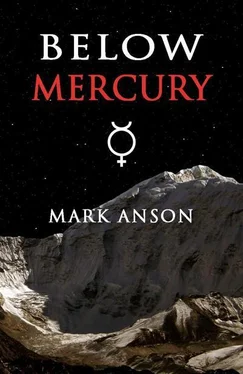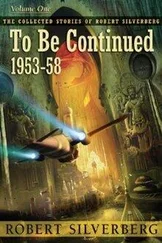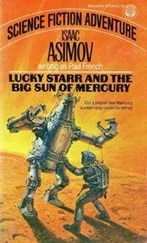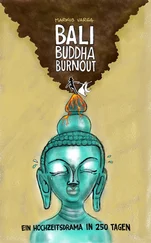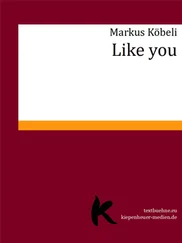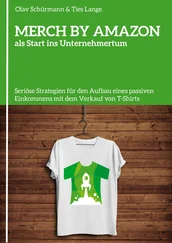‘Excuse me.’ Laker darted off to the stairs. There was some hand-waving and more talking, but eventually the guard nodded and indicated that she could go through. Matt watched as Laker led the woman up to meet him.
‘Matt, I wanted you to meet Rebecca Short. Rebecca, this is Matt Crawford. Rebecca represents one of the relative support groups.’
‘Mr Crawford.’ Short shook hands with Matt. Below the greying hair, her eyes were careful and assessing. ‘It’s good to meet you at last. Your work has been so valuable to us. We’d never had got this far without you.’
‘Yeah, and my former employers know that,’ Matt said with an ironic smile. ‘They haven’t exactly made it easy for me.’
‘Have you been able to find a new job?’
‘It’s not been easy.’ Matt looked down for a moment. Short seemed to realise that she had touched a raw nerve, and hesitated before continuing.
‘There have only been a few people who have helped us. The rest – people who could have made a real difference – they’ve just looked the other way, or threatened us with legal action. You don’t know how much difference you’ve made.’
‘I’d feel happier if I had made a difference. So far, we’ve got nowhere.’
Short shook her head emphatically.
‘If you’d seen as many families struggling to come to terms with this, you’d realise just what your help has done. It doesn’t matter that it’s been an unequal struggle; it’s having hope that’s important.’
The words helped, and Matt looked up and smiled, just as Laker touched his arm.
‘They’re opening the doors again. We’d better be getting in. Rebecca – see you in the lunch recess.’ Laker started walking to the committee chamber.
Matt started to say goodbye to Short, but she stopped him.
‘There’s something else. My clients gave me a message for you. They wanted me to say that, whatever happens today, they know you’ve done the very best you could for them. I was given a card—’
She opened her handbag and handed him a large envelope. Matt opened it and took out a plain white card with a child’s drawing on the front, showing a rocket flying to the stars. He opened it carefully, and inside were page after page of signatures and messages of support, some plainly from children. Matt slowly leafed through them all. There must have been hundreds of signatures in total.
Matt was completely unprepared, and as he stared at the pages filled with messages, he felt his eyes filling up and a lump coming in his throat. He looked back at Short and blinked to hide the tears, not trusting his voice to speak.
‘Matt, we need to go in now.’ Laker stood at the open doors.
Short put her hand on Matt’s arm and looked levelly at him.
‘Mr Crawford – all our hopes.’
‘Over the course of the day, you have heard experts from the Space Accident Investigation Board summarise a great deal of complex information on the investigation into the accident at Erebus Mine on November twenty-eighth, 2142.’
Chairman Trent faced the committee room, late in the afternoon.
‘I thank you for your patience in listening to these presentations. I also thank the parties to the investigation for their persistence and professionalism in investigating this accident, both at the time of the original enquiry and when assessing new data. Everything we learn about any accident makes a direct contribution towards improving safety for everyone working in space, and much has been done since then to improve safety in planetary mines.’
‘Like hell it has,’ Laker muttered near Matt’s ear. The attorney had changed his seat during the recess, and now sat next to Matt.
Trent continued: ‘It is important that everyone understands the basis of the overall conclusion that we have come to, in the light of the detailed reports you have all heard presented here today.
‘Reviewing a closed file is never an easy task, and even more so in this case, where we are dealing with an accident that claimed so many lives. Two hundred and fifty-seven men and women died as a result of the events of that day, eight years ago. Our thoughts, as always, are with the relatives at this time, who have had to face the pain of reliving those moments. Nonetheless, we are persuaded that reviewing the new evidence was the right thing to do. The intense public and media interest in the accident makes it essential that we demonstrate beyond all doubt, that every scrap of evidence has been properly reviewed.’
‘Yeah, like a Federal Court had nothing to do with it,’ Laker whispered.
‘With that in mind, and before I outline our findings, I draw your attention to the key findings from each of the sub-committees.
‘Firstly, the data record. The new telemetry data, recovered from the noise in the original transmissions, has been accepted as admissible and adopted as part of the factual data record. PMI should note that we are concerned that the huge effort put into recovering the data was largely borne by the relatives, and that PMI was less helpful than it could have been in facilitating this work. We will therefore be pursuing a separate review with PMI in that respect.’
So, Matt thought. No public censure of PMI for six years of obstruction and intimidation. So had there been a deal behind the scenes, as Laker had heard?
‘Second, the overpressure readings in the hangar before the outer doors failed and allowed the mine atmosphere to escape. You will recall that the original data record was missing these readings due to the data corruption that occurred at the time of the accident. You have heard from the airlock sub-committee that the reconstructed telemetry data does not show convincing evidence of a critical overpressure in the hangar, high enough to exceed the design limits of the main hangar doors. In this respect, we differ from the findings of the original investigation board.
‘The lack of a critical overpressure reading, however, does not mean that the doors could not have failed at a lower pressure, due to design inadequacy or manufacturing defect. We support the findings of the original investigation in this respect, however, and find no convincing evidence that either of these possibilities occurred.’
‘I now turn to the third key finding; the recovered data from the systems telemetry. After exhaustive examination of this new data, including simulations of possible command sequences that would produce the data, we cannot come to any firm conclusion. There is some evidence to suggest that the duty personnel attempted to close the internal pressure doors. Some of the other data, however, including the door position readings, contradicts this interpretation, and we do not find it conclusive.
‘Certain discrepancies were also noted in the recovered data for the alarm log, that caused the sub-committee some concern, including some inconsistent data frames, but this cannot be determined with any certainty.’
Trent paused, and went on to summarise the conclusions of the remaining sub-committees. Most had returned the same conclusions as before, with minor changes to the sequence of events.
After giving these, he stopped, and took a sip of water.
Here it comes, Matt thought.
The moment seemed to take an age, as if Trent was drinking in slow motion, the glass returning to the desk like the slow fall of an object on the Moon. Next to Matt, Laker leaned forward, his hands clenched.
At last, Trent adjusted his glasses and opened his mouth, to deliver the long-awaited words.
‘In summary, this board fails to find sufficient evidence for any failure of the outer airlock doors below design loads, nor do we find sufficient evidence of a critical overpressure that would have caused them to fail. The reason for the failure of the main mine doors therefore cannot be determined with any level of certainty. In addition, we cannot reach a conclusion on whether the internal pressure doors in the mine were commanded to close, and if they were, whether they operated as they were designed.
Читать дальше
